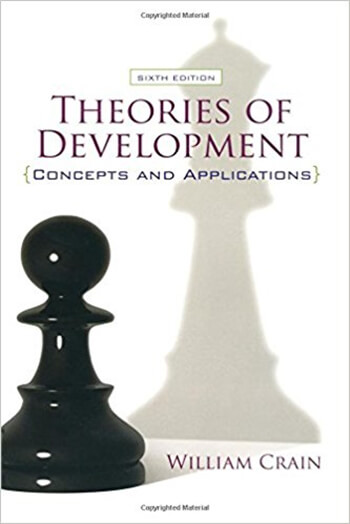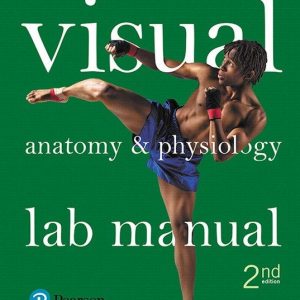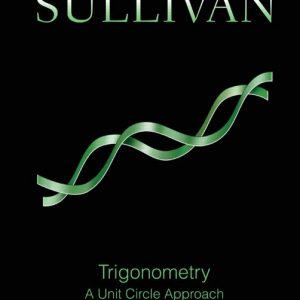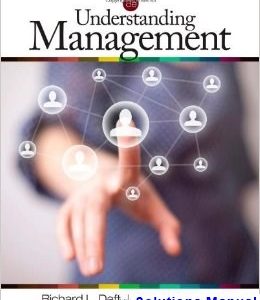This is completed downloadable of Theories of Development Concepts and Applications 6th Crain Solution Manual
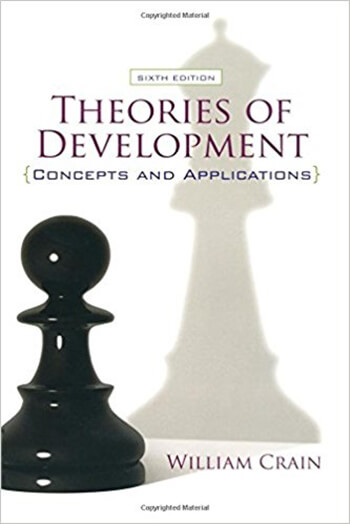
Product Details:
- ISBN-10 : 0205810462
- ISBN-13 : 978-0205810468
- Author: William Crain
The result of extensive scholarship and consultation with leading scholars, this text introduces students to twenty-four theorists and compares and contrasts their theories on how we develop as individuals. Emphasizing the theories that build upon the developmental tradition established by Rousseau, this text also covers theories in the environmental/learning tradition.
Table of Content:
Preface xiii
Introduction 1
Chapter 1 Early Theories: Preformationism, Locke, and Rousseau 3
Preformationism 3
Locke’s Environmentalism 6
Rousseau’s Romantic Naturalism 12
Chapter 2 Gesell’s Maturational Theory 22
Biographical Introduction 22
Principles of Development 23
Philosophy of Child Rearing 29
Evaluation 31
Chapter 3 Ethological Theories: Darwin, Lorenz and Tinbergen, and Bowlby and Ainsworth 35
Darwin and the Theory of Evolution 35
Modern Ethology: Lorenz and Tinbergen 39
Bowlby and Ainsworth on Human Attachment 47
Evaluation 67
Chapter 4 Montessori’s Educational Philosophy 71
Biographical Introduction 71
Theory of Development 72
Early Education in the Home 76
The Montessori School 77
Evaluation 89
Chapter 5 Werner’s Organismic and Comparative Theory 93
Biographical Introduction 93
Werner’s View of Development 95
Some Comparative Studies 100
Symbol Formation: An Organismic View 105
Theoretical Issues 108
Practical Applications 112
Evaluation 115
Chapter 6 Piaget’s Cognitive-Developmental Theory 118
Biographical Introduction 118
Overview of the Theory 120
Period I. Sensorimotor Intelligence (Birth to 2 Years) 122
Periods II and III. Preoperational Thought (2 to 7 Years) and Concrete Operations (7 to 11 Years) 127
Period IV. Formal Operations (11 Years to Adulthood) 138
Theoretical Issues 140
Implications for Education 143
Evaluation 147
Chapter 7 Kohlberg’s Stages of Moral Development 157
Biographical Introduction 157
Piaget’s Stages of Moral Judgment 158
Kohlberg’s Method 159
Kohlberg’s Six Stages 160
Theoretical Issues 166
Gilligan on the Feminine Voice 174
Implications for Education 176
Evaluation 179
Chapter 8 Learning Theory: Pavlov, Watson, and Skinner 180
Pavlov and Classical Conditioning 180
Watson 183
Skinner and Operant Conditioning 187
Evaluation 201
Chapter 9 Bandura’s Social Learning Theory 204
Biographical Introduction 204
Basic Concepts 205
Socialization Studies 208
Self-lifftcacy 213
Abstract Modeling and Piaget’s Stages 215
Practical Implications 219
Evaluation 221
Chapter 10 Vygotsky’s Social-Historical Theory of Cognitive Development 224
Biographical Introduction 224
Marx’s Views on Human Nature 226
Vygotsky’a Theory of Psychological Tools 228
Memory Aids 232
Speech 232
Play 239
Schooling 240
Practical Applications 245
Evaluation 248
Chapter 11 Freud’s Psychoanalytic Theory 253
Biographical Introduction 253
The Stages of Psychosexual Development 256
The Agencies of the Mind 268
Practical Implications 276
Evaluation 277
Chapter 12 Erikson and the Eight Stages of Life 281
Biographical Introduction 281
Erikson’s Stage Theory 282
Theoretical Issues 297
Practical Implications 302
Evaluation 304
Chapter 13 Mahler’s Separation/Individuation Theory 306
Biographical Introduction 306
Overview of Concepts and Methods 307
Phases of Normal Development 309
Practical Applications 315
Evaluation 316
Chapter 14 A Case Study in Psychoanalytic Treatment: Bettelheim on Autism 320
Biographical Introduction 320
The Autistic Syndrome 321
Therapy 322
Evaluation 327
Chapter 15 Schachtel on Childhood Experiences 329
Biographical Introduction 329
Basic Concepts 329
Implications for Education 333
Evaluation 334
Chapter 16 Jung’s Theory of Adulthood 338
Biographical Introduction 338
Personality Structure 341
Theory of Development 344
Practical Implications 348
Evaluation 349
Chapter 17 Chomsky’s Theory of Language Development 351
Biographical Introduction 351
Basic Concepts 352
Notes on the Growth of Grammar 358
Chomsky and Learning Theory 362
Chomsky and Piaget 368
Implications for Education 369
Evaluation 371
Chapter 18 Conclusion: Humanistic Psychology and Developmental Theory 373
Humanistic Psychology 373
Developmentalists as Humanists 379
Epilogue: A Developmental Perspective on the Standards Movement 385
References 396
Name Index 417
Subject Index 423

